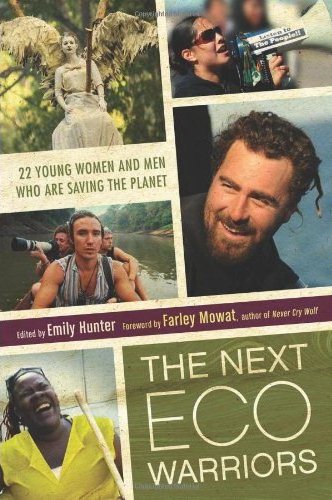Evo Morales, Bolivia’s indigenous president, has said that the challenge of the 21st century is to respect and restore the rights of Mother Earth. And the stakes are high. Ultimately, the fate of our species — and millions of others — hangs in the balance.
Already, thousands of young people worldwide have woken up to their historic task, as the first decade of this century has seen the rise of the climate justice movement. For many among this new generation, the December 2009 UN Climate Summit in Copenhagen was a rude awakening.
Preceded by years of grassroots and civil society demands for the adoption of an ambitious, legally binding global plan to reduce fossil fuel emissions, legions of young activists arrived in Copenhagen full of hope that they could be part of making real change. But something was rotten in Denmark. Circumventing and ignoring not just global civil society, but most of the world’s governments, U.S. President Obama and a handful of the other biggest polluting nations met behind closed doors and declared the “Copenhagen Accord.”
For Emily Hunter, daughter of Greenpeace founder Robert Hunter and an experienced environmental activist in her own right, this was a moment when “hope was nothing more than a distant dream.” Hunter is the editor of new collection of essays, The Next Eco-Warriors: 22 Young Women and Men Who Are Saving the Planet.
In her introductory essay, she explains that after the shocking disappointment of the “Accord” forced through by the world’s most powerful politicians in Copenhagen, her hopes were rekindled by demonstrating in the streets with other young people:
“I came to realize that with the failure of Copenhagen came an opportunity. An opportunity to build a movement that was not just focused on events like this summit, but also on a generation’s actions. An opportunity for a movement that is more global, inclusive, and stronger than ever before.”
The activist testimonials collected in The Next Eco-Warriors provide a sketch of the breadth and dynamism of this incipient movement.
The book’s definition of youth, it must be said, stretches what is always a dubiously meaningful political category, including contributors in their late 30s. In some parts of the world, including many of the poorest countries facing the brunt of the impacts of climate change, that is middle-aged. In the climate justice movement it often is genuinely young activists taking the lead.
Take the story of Jamie Henn, one of the key young organizers behind 350.org. While Bill McKibben is a brilliant scientist who can explain the science behind their campaign to reduce atmospheric carbon levels to below 350 parts per million, 350’s success would have been much more modest without their young web and social media savvy team. Henn’s chapter describes the travels and trials that went into making the massive 350 day of action in fall 2009.
I was delighted to find a chapter by Ben Powless explaining his experience providing reporting on a massacre of indigenous people in the Peruvian Amazon. Powless just happened to be in Peru when the events took place, and within hours his photos and articles were being published by rabble.ca and other independent media. These are the essential stories — indigenous peoples fighting to defend their land and resources, often against Canadian mining companies and other rapacious corporations — that are too often simply never told.
Eco-Warriors helps break that silence. Another chapter, by Diné activist Enei Begaye, tells the story of the successful campaign to shut down the Black Mesa coal mine on Navajo territory in Arizona. In the wake of the mine’s closing, Begaye explains, the struggle is now for jobs that respect the land:
“Green jobs mean good-paying jobs that don’t pollute. They also mean more than cloaking a broken capitalist system in a sexy green dress.” You would be hard pressed to find a more eloquent denunciation of greenwashing.
A few of the essays don’t seem particularly relevant, especially given Hunter’s introduction with its sharp focus on climate justice and the unprecedented urgency of the struggle to avert runaway climate change.
Overall, however, by highlighting the work of young activist-writers, The Next Eco-Warriors‘ publishers have done us all a service. These are stories we need to read. But more importantly, these are the struggles we need to learn about, support and join in.
We all need to be warriors in the battle that will define this century and the future of life on Earth.—Derrick O’Keefe
Derrick O’Keefe is a writer, editor and social justice activist in Vancouver, B.C. Read his rabble blog here.



